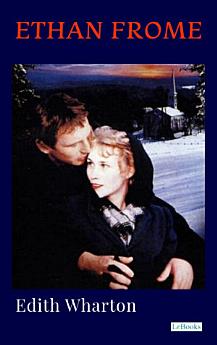Ethan Frome
About this ebook
Ethan is a struggling farmer bound to his sickly and demanding wife, Zeena, whose hypochondria and coldness dominate their household. When Zeena's younger cousin, Mattie Silver, comes to live with them as a helper, Ethan finds in her warmth, vitality, and companionship the possibility of an emotional life he has long been denied. A quiet but intense bond grows between Ethan and Mattie, though it remains constrained by social and moral obligations.
The tension culminates when Zeena decides to send Mattie away. Desperate, Ethan and Mattie attempt to escape their impossible situation through a dramatic sledding accident, intending a double suicide. Instead of freedom, they survive, but broken and permanently disabled, condemned to a life of even greater suffering and dependency. The novel's conclusion reveals them years later, trapped together in a household of bitterness and silence, a grim reflection of thwarted passion and resignation.
Edith Wharton (1862–1937) was an American novelist, short story writer, and the first woman to win the Pulitzer Prize for Literature. Known for her sharp portrayals of social conventions, moral dilemmas, and the constraints imposed on individuals—especially women—by class and circumstance, Wharton used Ethan Frome to explore themes of desire, repression, and the crushing weight of environment and duty
About the author
Edith Wharton (1862–1937) was an American novelist, short story writer, and essayist, widely recognized as one of the greatest figures of early 20th-century Anglo-American literature. Born in New York City into a wealthy family, Wharton is remembered for her sharp portrayal of high society and her ability to explore the tensions between tradition, individual desire, and social change. She was the first woman to receive the Pulitzer Prize for Fiction, in 1921, for her novel The Age of Innocence.
Wharton began her career by publishing stories and essays in magazines but soon achieved recognition with novels that realistically and critically depicted New York society. The House of Mirth (1905) established her as a major novelist, portraying the pressures and sacrifices faced by women in the New York aristocracy. With Ethan Frome (1911), she shifted her focus from the wealthy elite to the harsh realities of rural New England. Her masterpiece, The Age of Innocence (1920), earned her the Pulitzer Prize and became one of the most celebrated depictions of social codes and the conflict between duty and passion.
Wharton's writing is distinguished by its stylistic precision, sharp critique of social hypocrisy, and its unique balance of irony and compassion toward her characters. She was also a noted intellectual, producing essays on architecture, gardening, and travel, and became an influential cultural figure in both the United States and Europe. Her work influenced later generations of writers and solidified her reputation as a pioneer of the social and psychological novel in American literature.







